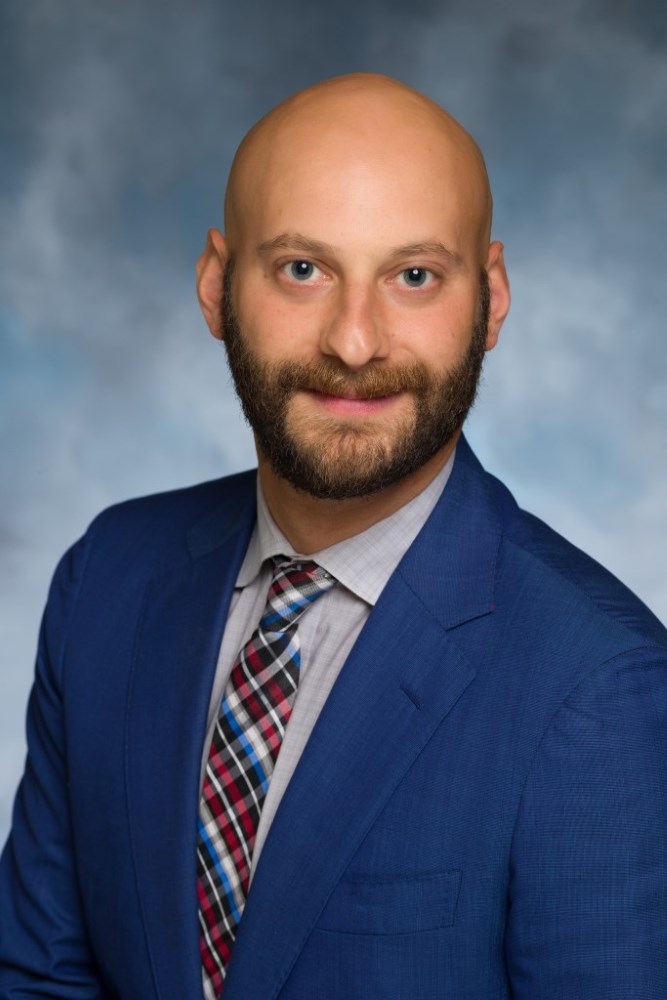Faculty Focus: Q&A with Jeremy Sinkin, MD

Jeremy Sinkin, MD, is an assistant professor of surgery in the Division of Plastic & Reconstructive Surgery at Rutgers Robert Wood Johnson Medical School. He's also director of Microsurgery at Robert Wood Johnson University Hospital in New Brunswick, N.J., and co-associate director of the Rutgers New Jersey Medical School Integrated Plastic and Reconstructive Surgery Residency Program. Dr. Sinkin earned his medical degree at the University of Rochester (N.Y.) School of Medicine and Dentistry and completed his plastic surgery residency training at MedStar Georgetown, followed by a fellowship in Complex Microsurgery and Breast Reconstruction at Memorial Sloan Kettering Cancer Center.
PSR: HOW DID YOU PREPARE FOR A COMPETITIVE FELLOWSHIP?
Dr. Sinkin: I entered residency without knowing exactly how I wanted to structure my career in plastic surgery, so I remained very open-minded throughout my training toward diverse clinical experiences and research opportunities. My main priority was to become a well-rounded, competent and compassionate surgeon. Organically, my interests began gravitating toward complex reconstruction and "surgical problem-solving" – and the solutions that microsurgery and free-tissue transfer can offer patients.
PSR: WHAT IMPACT DID YOUR FELLOWSHIP HAVE ON YOUR CAREER?
Dr. Sinkin: Being a fellow at Memorial Sloan Kettering was a tremendous experience. The volume and complexity of cases accelerated and honed my skill-acquisition and armed me with the confidence to offer my patients the full spectrum of reconstructive options. Additionally, the interdisciplinary collaboration and collegiality I experienced in fellowship set the bar for how I wanted to structure my practice. The year also allowed me to connect with new mentors and colleagues, who I carry with me to this day.
PSR: HOW IMPORTANT IS A MENTOR – AND HOW CAN WE FIND ONE?
Dr. Sinkin: Mentors are incredibly important throughout training and beyond. Mentors come in all shapes and sizes, and it's important to recognize that you can have more than one. Many residencies have instituted formal mentorship programs, which can be helpful in ensuring that a resident continues to meet milestones such as clinical competency and timely fellowship applications. But mentor-mentee relationships more often form organically through shared interest and experience. Some mentors might be faculty with whom a resident performs research. Other mentors could be faculty or senior residents who have a career or work ethic that the resident admires. Not every mentor can be everything to the mentee, so having more than one enables a resident to draw from the strengths of many.
PSR: WHAT'S THE MOST IMPORTANT ATTRIBUTE OF A RESIDENT?
Dr. Sinkin: Their most important attribute is passion for learning and plasticity. Residency is a period of time when knowledge and skill-acquisition is fast and intense. Residents will be exposed to diverse clinical, social and professional scenarios, therefore it's essential for them to be open to learning from this heuristic process. Over time and with more experience, a well-rounded resident with a strong foundation will be able to develop their unique style and interests.
PSR: HOW DO YOU BALANCE YOUR PROFESSIONAL AND PERSONAL LIVES?
Dr. Sinkin: The balance between professional and personal life is always in flux. Some days or weeks, the balance will favor more time and energy devoted to professional pursuits. Other times, it's the opposite. My wife and family are supportive of my career decisions, and they understand when I need to spend nights or weekends at work. We make the most of the quality time we spend together and encourage each other's interests. After several years in practice, I found myself desiring a hobby. Initially, I asked friends and colleagues for suggestions and received a variety of fascinating responses, including racecar driving, cocktail mixology, woodworking and watch-making. Ultimately, I decided to start taking saxophone lessons, and it's been a real boon to my personal life – as well as makes for interesting discussions and music choices in the O.R.
PSR: WHAT WAS YOUR GREATEST NON-MEDICAL CHALLENGE OF TRAINING?
Dr. Sinkin: Residency is inherently a challenging time in our lives as we focus on our own professional growth and learning. There were many personal sacrifices, such as missed weddings, birthdays, social gatherings – and neglected friendships. After several years in practice, I feel like I've been able to re-establish healthy routines such as getting regular exercise, socializing with friends and family and being a thoughtful contributor to my community.
PSR: WHAT ARE SOME OF THE CHALLENGES YOU ENCOUNTER ON A REGULAR BASIS?
Dr. Sinkin: My clinical practice is very diverse. It ranges from aesthetic and reconstructive breast surgery to complex oncologic reconstruction of the head/neck, torso and genitalia, to gender-affirming surgery and traumatic face and extremity reconstruction. Each patient presents their own unique challenges, and I find satisfaction in guiding our residents through the process of identifying viable treatment options and executing successful surgeries.
PSR: WHAT ADVICE DO YOU HAVE FOR PLASTIC SURGERY RESIDENTS?
Dr. Sinkin: In the moment, residency may feel interminable, but in retrospect, it's over in a flash. Trust the process, put in the effort, nurture your relationships and enjoy the ride.
PSR: COMPLETE THIS SENTENCE: "I KNEW I WANTED TO BECOME A PLASTIC SURGEON WHEN..."
Dr. Sinkin: I saw how happy my plastic surgery mentors were every day, just doing what they were passionate about.